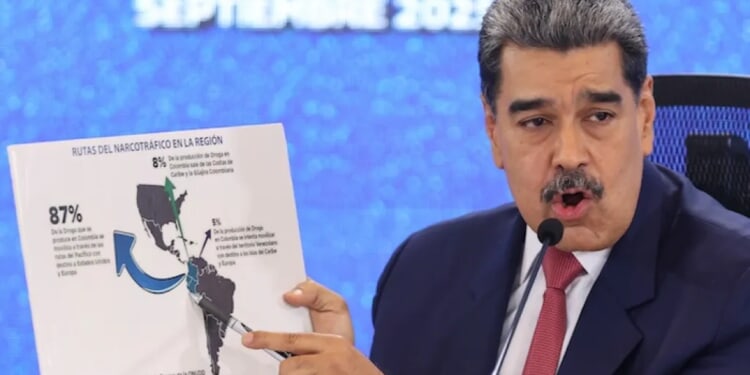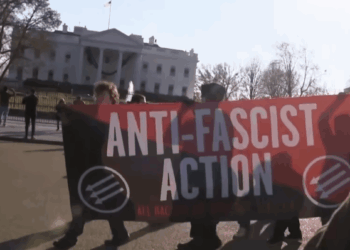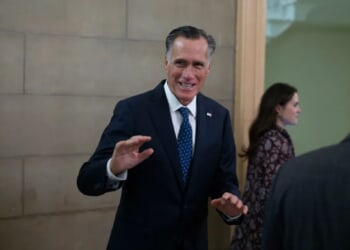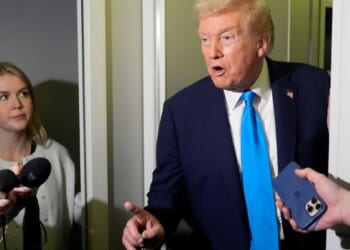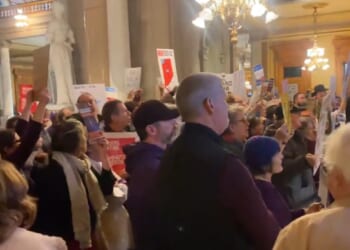President Donald Trump denied on Friday that he had authorized kinetic strikes on Venezuelan soil, even though most experts agree the U.S. military presence in the region far exceeds the needs for the current mission.
The Trump administration has developed a multi-pronged approach to squeeze Venezuelan dictator Nicolas Maduro, though he has remained defiant up until this point. Their strategy includes doubling the bounty on his head to $50 million, conducting lethal strikes on purported drug vessels, though the attention is now focused on whether Trump will approve strikes on Venezuelan soil, which would be a significant escalation.
“No, it’s not true,” Trump told reporters on Air Force One, in response to questions about reporting that he had approved strikes in Venezuela.
His denial comes after the U.S. military, which has its largest presence in the Caribbean than at any point in the decade, has conducted more than a dozen strikes targeting alleged drug smuggling vessels heading from South America intended for the United States, killing more than 50 people.
Changes from first term
Trump’s strategy toward Venezuela has been much tougher during his second term than his first, even though he also tried then to oust Maduro.
“This is the thing that I can’t explain,” Elliott Abrams, who served as the Special Representative for Venezuela for the last two years of the first Trump administration, told the Washington Examiner. “There were people in the first term, John Bolton primarily, but me and others who would have wanted a more aggressive policy against Maduro. I think if you had suggested to the president say in 2019, this kind of military build up, he would not have accepted it.”
Back on August 11, 2017, Trump told reporters at his Bedminster golf club that he was “not going to rule out a military option” in Venezuela, even though, according to Gen. H.R. McMaster’s 2024 book about his time as Trump’s national security adviser, then-Secretary of State Rex Tillerson asked him to do exactly the opposite.
McMaster’s successor, John Bolton, wrote in his book about his time as Trump’s national security adviser, that Trump said, “Get it done,” in relation to ousting Maduro in 2019. “This is the fifth time I’ve asked for it,” Trump noted.
Abrams said that former CIA Director Gina Haspel “didn’t want anything to do with Venezuela” during his first term. Trump said a couple of weeks ago that he authorized the CIA to conduct covert operations on Venezuelan territory.
In 2019, the administration officially recognized Venezuelan opposition leader Juan Guaido as the legitimate leader of Venezuela after a 2018 election victory for Maduro that was decried internationally as rigged. More than 50 countries eventually recognized Guaido as the country’s head of state.
“Maduro believes this is a bluff because a lot of people thought that ‘all options on the table’ during the first Trump administration meant that military action was imminent,” and it never happened, James Story, who served as U.S. ambassador to Venezuela and head of the Venezuelan Affairs Unit at the U.S. Embassy in Bogotá, Colombia, told Politico. “The ‘all options being on the table’ have moved from the table and moved directly to the front doorstep of Maduro. And the options are there, and the president will have the option to do everything up to and including decapitation of the government.”
Maduro was able to withstand that campaign to oust him, largely in part due to his continued support from the country’s elite. One way the administration is now seeking to turn them against him is by doubling the bounty on Maduro from $25 million to $50 million.
Abrams said he hopes the CIA is trying to convince Maduro’s circle to turn on him.
Targets in Venezuela
President Trump is reportedly considering plans to target cocaine facilities and drug trafficking routes inside Venezuela, but hasn’t approved such escalation, he said on Friday.
Despite his denial, Abrams said the current build up is “just not commensurate,” with the current mission.
“We’re hitting a few boats in the Caribbean or in the Pacific, and I assume the next step is to hit targets on land in Venezuela,” he said. “So I make the assumption, I think everyone does that this is also about getting rid of Maduro.”
The U.S. military has multiple warships in the Caribbean and the Navy’s most advanced aircraft carrier is on its way to the region. They have conducted several bomber aircraft missions near the Venezuelan coast over the past couple weeks.
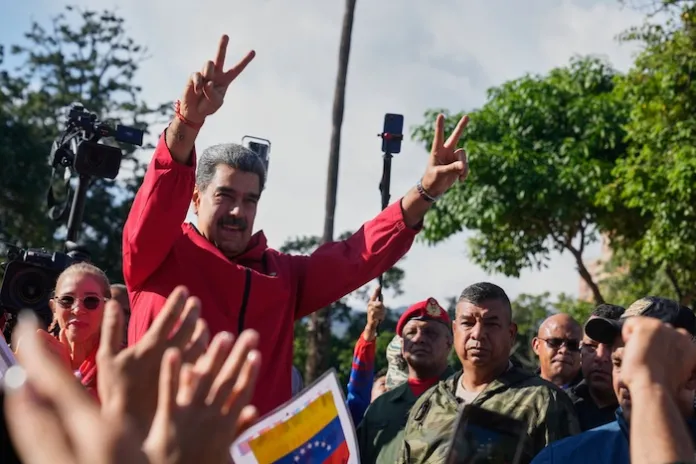
“I think you could expect to see, for example, hitting airstrips, maybe hitting military bases, hitting [National Liberation Army] bases in western Venezuela hitting ships in port rather than in international waters,” Abrams said, referencing what he thinks the U.S. would target on Venezuelan soil. “The second part of that, though, would be, what about decapitation strikes? I don’t think that is off limits.”
Lawmakers frustrated
Lawmakers of both parties have expressed their frustration with how the administration has conducted classified briefings of the strikes this week and the lack of information they’ve been given regarding the strikes targeting purported drug vessels.
The administration only briefed Senate Republicans on recent military strikes against Venezuelan drug boats earlier this week, leaving Democrats out. In the lower chamber, officials briefed members of the House Armed Services Committee on Thursday, and several lawmakers left with unanswered questions.
Rep. Mike Turner (R-OH), formerly the chairman of the House Intelligence Committee, said on MSNBC’s Morning Joe, “Yesterday, there were not very good answers as to what is the standard, what is occurring,” later adding, “people were very frustrated with the level of information that was provided and certainly the level of legal justification that was provided.”
Rep. Seth Moulton (D-MA) similarly said, “I found their justification for what they’re doing so flimsy that it makes the case for the Iraq War look like a slam dunk,” while the top Democrat on the House Armed Services Committee, Rep. Adam Smith (D-WA) said these strikes violate the due process of the people killed in them.
Both of them said there were supposed to be department lawyers available to answer the legal questions regarding the strikes, but they didn’t ultimately appear at the briefing.
NEW US BOAT STRIKES IN EASTERN PACIFIC RAISES DEATH TOLL TO MORE THAN 50
Rep. Sara Jacobs (D-CA) said the department told lawmakers it doesn’t need to identify the specific individuals on a given vessel to carry out a lethal kinetic strike, rather the military “just need to prove a connection to a designated terrorist organization or affiliate,” according to Politico.
The Senate could vote on a war powers resolution to block military action against Venezuela without congressional authorization, though it’s unclear whether it would get the necessary votes to pass.

